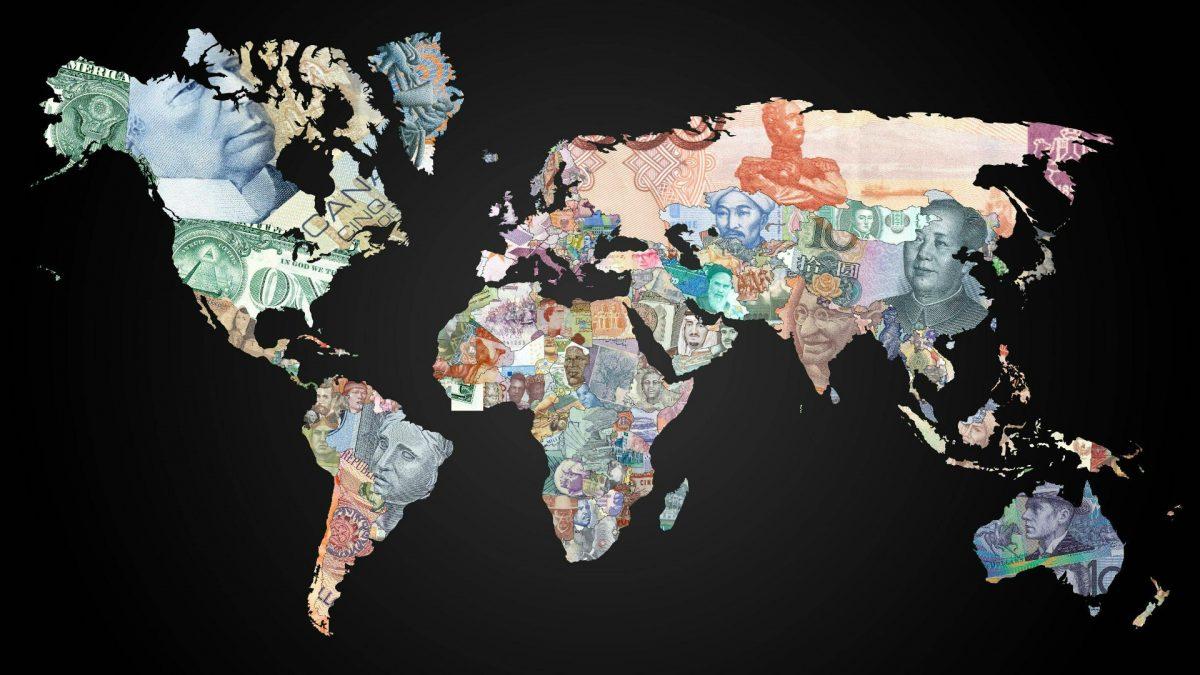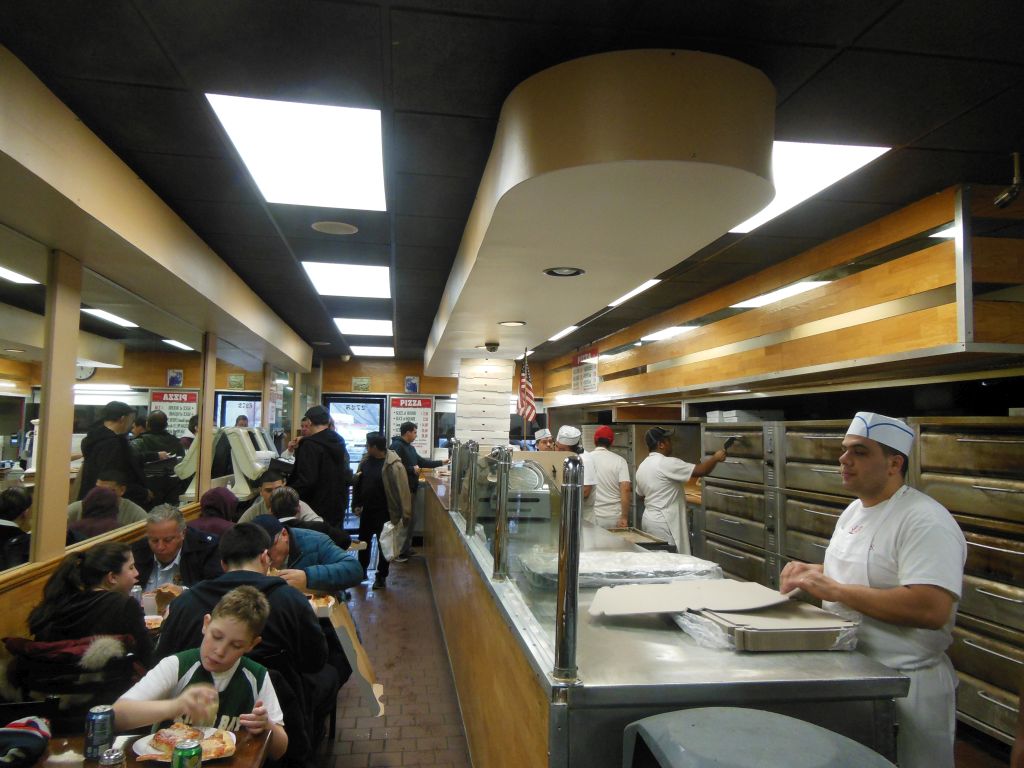If there’s one thing I’ve learned since leaving my corporate gig for greener pastures, it’s this: online, people can be really, really cheap.
I mean this in the sense of trying to sell products, especially certain niches. For example, who is more likely to make an impulse buy—a male mathematician or a female makeup artist? In most cases, the math guy has had a life of critical and analytical thinking, backed by his generally higher male standards of logic. On the contrast, a makeup artist is much more of a “free spirit”; likely to make decisions based off of emotions and feelings.
This kind of logic is pretty obvious on the surface: women are easier to sell to than men. If you need proof, look no further than at the household spending by gender demographics. But what if we take it a step farther, and look at it in terms of online versus offline business. Is one niche even easier to sell to than the other?
Brick And Mortar

Generally speaking, those who run online businesses like myself have less of a budget for expenses than a brick and mortar shop. For example, if I’m hiring a freelance writer to round off some articles on one of my small sales sites, I’m looking for some sort of middle ground between quality and price.
If I can find a greater writer from a place in Eastern Europe, who has a grasp on English that is 80% as good as a native speaker—I’m going to take that. Sure, it’s going to require more edits (I’m picky), but the Eastern European writer’s price is also going to probably be a third of what a native speaker living in the west would charge.
So I take the 80% quality for the third of the price. Nothing is probably ever going to change that, simply because of the nature of the business that I’m in.
However, let’s take a brick and mortar type of business—a pizza shop. The owner has little knowledge of anything about the internet—he doesn’t know how to tweet, use Facebook, or design his own website. He’s naturally hesitant of hiring things out to people abroad because of several factors.
- Time zones—his brick and mortar hours are set and fixed to his local times
- Horror stories—lots of his fellow entrepreneurs probably have told him horror stories about hiring people abroad
- Simple efficiency—he doesn’t want to have to clean up mistakes, he just wants to hand the reins off to somebody and have them be “the guy” who handles everything
Therefore, a brick and mortar guy is far more likely to take the reverse of what I would do. He’ll take the higher quality at the higher price rather than a majority of the quality at a much lower price.
Maybe Nomads Do It Wrong?

Throughout my time living abroad, I’ve built my online business, but I’ve also worked with a few clients in a more offline space. I am making a full-time income and living off of my blog as I’ve shown, but I still take on the occasional consulting or design client if it suits me. Having a little extra money in the bank is never a bad thing. It has been amazing how much more they are willing to pay, how much easier they can be to work with, and how much more pleasant the experience has been.
Now, I will admit that my sample size is small. But it’s enough by now that I’m starting to see some trends to it. In addition, I also should mention that the majority of these clients more or less fell into my lap—I didn’t have to go out and actively hunt from them. Instead, they came to me on recommendations. So that is a huge time consideration that would come into play.
With that being said, when people come to me and ask now, “How do I make money online?”, I’m tempted to start saying they should go offline to do so.
Find brick and mortar clients who are in need of work online. Clients who don’t care where you are in the world—as long as you pick up the phone, do a good job, and they’re satisfied with the price you charge.
For some small shops, paying someone a thousand dollars a month to run the website, post to social media, and handle everything with their online presence is a good deal. Find one or two of these clients and you’re looking at a great salary for a place like Southeast Asia or Eastern Europe.
It Doesn’t Have To Be Web Design, Either!

There are plenty of other fields that could benefit from someone keeping an employee on a monthly retaining contract.
Plenty of businesses need a consistent source of content—if you were tasked with writing a handful of articles a week and posting them to a blog, that could pay well. I pay my own staff for anywhere between 3 and 10 articles a week, for example.
Perhaps a local business runs a large Facebook group or forum, and needs someone to moderate it every day—something they don’t have the time or energy for.
Or finally, perhaps a business wants something as simple as some cool Instagram graphics to be posted daily (which can be done in a matter of minutes with the right tools), and is willing to pay someone to make them and auto-schedule them out for a month.
The point is, the more the internet grows, the more that smaller businesses are being forced into having an online presence. This has never really been part of the job for these small business, but their hand has now been forced. The internet is not going away, and not having an internet presence is hurting their credibility. The thing is, it’s not like the day-to-day tasks of running a brick and mortar type of business have gone away. The internet is just a forced addition—one with a steep learning curve and requiring a massive time investment.
Closing Thoughts

I will be the first to say that this article does not come based on massive amounts of experience. Just a small sample size that has shown some potential. But perhaps many people who as aspiring to live abroad and make money on the internet are over-complicating things.
Maybe there’s no need for snazzy opt-ins, sales funnels, A/B testing, and all of the other gadgets and gizmos that come with the territory of internet business. Perhaps the real answer to your problems is something as simple as walking into the pizza shop down the street and meeting the owner, or striking up your conversation with your dentist about his web presence.
It’s definitely not “easy”, but if there’s one thing I’ve learned from business, it’s this: it doesn’t always work, and sometimes, it’s just a matter of trying things until something finally sticks.
If you’re looking to free up more time to pursue business, read my book King’s Code. For more advice about living in Eastern Europe, check out my blog.
Read More: 7 Things I Learned On The Road This Year
Wat
The key takeaway, I think, is that you shouldn’t limit your business to the common plan(s).
Take a look at Wendy’s, for example – they hired a shitposter to run their Twitter presence, and as a consequence brand recognition has never been higher. Between the “I need my nuggies” meme (the Wendy’s rep said it would take 18 million retweets to get a year of free nuggets, and last I checked it had something like 4 million free ads floating on various timelines) and the hilarious banter, they’ve managed to pay one person a few thousand a year for millions of dollars in views.
The other fast-food companies are trying it, but because they’re simply imitating a model that worked without understanding exactly why they haven’t had the same success.
There are potentially thousands of ways one could blend real-life and virtual space to great effect. Trump used the combination of heavy real-life campaigning in large venues with the cheaper and faster Twitter posts to cement a larger audience. Wendy’s has used their shitposter to great effect. Perhaps there’s a mechanism by which one could add a physical presence to their online presences to generate greater revenues, as well.
The RooshV Conference a couple years back really cemented for me that this isn’t just an internet forum. Since then I’ve got a handful of friends and acquaintances I only know because of ROK.
Now I’m confused —http://www.returnofkings.com/118813/3-ways-i-make-money-online
I really need to make some good money in a bad way…
Well you’re in luck. I’ve got a Nigerian friend who can help, just send me your social security number, bank accounts and birthday.
Isn’t he long dead? Is this a robert mugabe offer for me?
Zimbabwe, Nigeria, I’ve got living and dead friends everywhere. For a good time, call.
Here’s one question for all the “online business slayers”:
Let’s cut the crap. How much money are you making? Honestly.
Edit: I am not interested in replies from html “coders” slaving away for some givemeagig.com. Actual business owners making / selling / marketing stuff.
Their money is made by getting people to buy their books and attend their seminars on how you can make money.
BTW did I ever tell you how I only had $50 and bought 8 million dollars worth of real estate with nothing down?
For me, it’s a hobby that’s made me a few hundred bucks over the past year or two. I like to write, and if I like what I’ve written I’ll publish it. If I like a bunch of related things I’ve written, I’ll self-publish a book and some people will buy it.
There are ways to make money, but unless you’re Bob Smith the odds are against you. You need to be able to sell any services you provide, and that’s where almost everyone falls flat. Of those who can sell, many do not have the skills or products which people would desire, and so they fail.
(Bob got into this relatively early on, and he rents out websites to realtors. There’s apparently good money in that.)
My guess is that they are not making much.
But I suppose if living in a 3rd world country somewhere, perhaps 2 or 3K/month is enough to do OK.
Not much. I had food bloggers show up at my restaurant . I gave them some goodies, some food for the kiddies , and some coupons. In return i got a nice post on instagram
Seriously. Every web entrepreneur and their mother is more than happy to coach anyone who will pay but go radio silent when asking about figures. I can tell people the exact dollar figure I earned last month. If you’re trying to recruit me let’s see some numbers.
It’s reminiscent of the Carleton Sheets real estate investment seminars of 25 years ago. In truth, if you really had an angle for making money, you sure as hell wouldn’t tell anyone about it. You’d just make money using it.
COFFEE IS FOR CLOSERS!
A.B.C….
It also brings to mind William McCorkle, Don Lapre and Tom Vu… Where are they now?
Don Lapre finally got picked up by the Feds a few years ago. He killed himself in his jail cell shortly thereafter. He was an active and committed fraudster. At least Carleton Sheets was wasn’t; he was just selling information that would be obvious to a mildly curious person with a library card (30 years ago).
Absolutely. These guys were on late night tv over 20 years ago – I remember those informercials like it was yesterday.
Exactly – Show me your 1040’s!
I’ve got a link to last month’s in the post! https://thisistrouble.com/2017/04/11/march-2017-income-report/
It’s not a ton (more than enough to live abroad). I’m curious how it will grow (went from $100/mo to $3k in a year).
I suspect there is an eventual cap but I’ll find out.
What is ‘offline’? Is this a place that really exists, or is it just a figment of our imagination? https://uploads.disquscdn.com/images/fa19678843a71374f2832601254af842d94ece5f4de581aada82819578a62979.png
Damn this guys Kratom is strong!
What’s with all these gay stories being published?
Find a woman’s magazine to put this shit in.
Instagram bloggers would come to my business .often they would be stay at home moms. I would give them coupons and free food for a nice post.
Real business talk. I bought into a brick and mortar franchise. $39k for the franchise fee, $10k for the site administration fee. $100k for the building finish out. Signed a 7 year lease for $6k a month. After arguments with the city for health codes and ADA certification I was already 2 months into my lease. Late opening. Had 2 pay one months rent with no revenue. Finally passed building codes and got my c/o. Staff hired . Sales came fast for 4 weeks . Things were looking up. Hardly slept. Took 4 weeks off from work. Have a son to raise and a corporate job . A fucking competitor with a more popular brand image moved next door and stole my sales. I still got some overflow and loyal customers . 6 months later not breaking even. P&Ls show -$10k per month in sales . Decided on spending heavily on marketing , coupons , fakebook, etc. Eventually employees lost faith and I defaulted on loans . Chapter 7 came. After all that a major sports franchise came and offered me better rent and guaranteed sales. I was out of cash. Too little too late. This is what happens thousands of times per year to thousands of businessmen in the United states . This is reality. Welcome to the real world
In the 3rd world, if you open a successful business, 10 more places selling the exact same thing will be opened next to you within 6 months. And they can all undercut you because they only need a mud hut to live in.
And the other Indian competitors I had brought in family members for free all living in the same fucking house. They also had Web businesses tutoring science students in the side for cash. I was paying good wages to decent pepole , paying labor taxes like a good honest gullible American. Some good that did me
Justifying your own failure, Yoooooooo!
Your soul was eaten by your ex.
Negative vibes, Moriarty….
Wow. Not exactly the feel-good movie of the summer, that. Tough luck mang.
Im proud of myself for having the balls to risk it all. I’ll recover fast and I’ll do it again . Nothing good comes easy maybe except for a select few . God bless them. He blessed me with failure and tenacity . No regrets . I just want to show the reality of entrepreneurship
Dude you are right about that, and you maintain the correct attitude, even in (temporary) failure. Two thumbs up.
You can’t get anywhere in life unless you roll the dice.
Damn straight brother .
95% of this obedient population will never risk one dollar in their entire lives. Their wives will crucify them. Good for you man. Success always starts with failure. It must be. That’s something the majority will never understand.
Having balls to take risk will separate you from the 90 % of the herd who doesn’t – and never will. That alone makes you a winner !
The only one who makes money on a franchise is the franchisor. The franchisee is the one who takes it in the ass from the franchisor.
Yes but they provide a system that you buy into. Typically the franchisor has corporate stores from which they derive their performance disclosures. It was a very easy business to run. However, I didn’t choose the best venue and the franchisor did committ fraud against me and could have helped more with marketing . Now I have the lawyers sorting this out.
Sorry to hear that. In my experience, your story is more the rule than the exception.
Not always. I have a buddy who has one of the largest plumbing businesses ( under a franchise name) in the northeast. He makes serious money from it. However, it does help that he is a very shrewd businessman and probably one of the smartest marketers Ive ever met.
Please tell me you didn’t name the business as adroitly as your Discus handle…..
Network Architecture — because the Internet keeps getting bigger, more complex, and less people to handle it every day. Everybody uses Skype, but less than 0% of the world knows what TCP and UDP ports it uses, and whether it’s using SSL or TLS. And the very few % of people who do know (in addition to all the other apps out there and their dependencies) are the ones making the big bucks.
This also has a real nice side-effect. As you gain knowledge of how the Internet really works, you start to use it less and enjoy the outside world more. This is because many of the mysteries are revealed like: how to hack, who’s hacking, where they are hacking, how many of them are hacking, etc. You quickly realize that it’s too much of a pain in the ass to keep up with the latest and greatest security your whole life and ergo decide that it’s much easier to just not use the shit in the first place UNLESS YOU REALLY HAVE TO (i.e. commenting on RoK, but at least you’re using a fake alias).